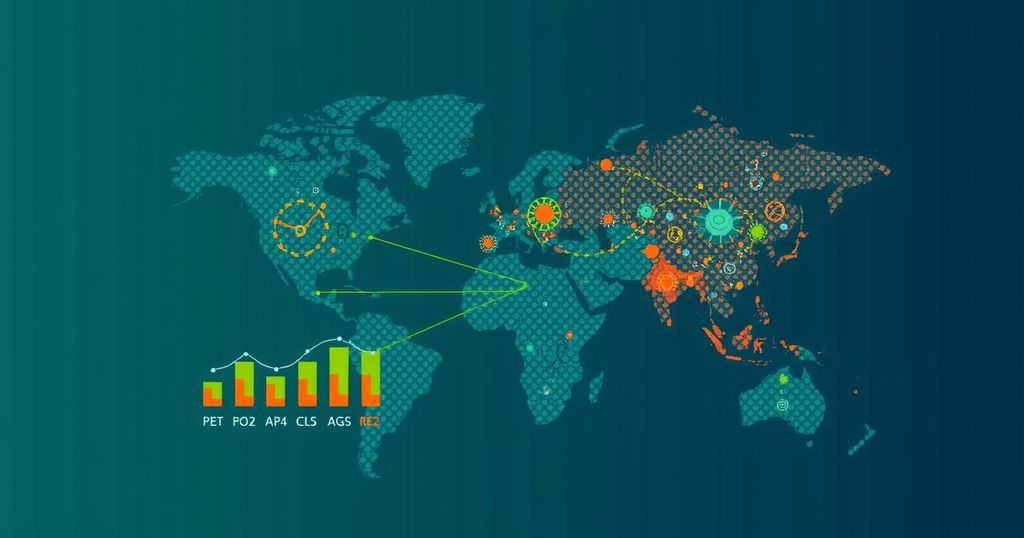A comprehensive report reveals that climate change presents unprecedented threats to global health, with 10 out of 15 tracked indicators reaching alarming levels. Experts warn that the consequences have resulted in significant loss of life and require immediate action. Despite troubling statistics, there are signs of progress in reducing fossil fuel pollution and increasing renewable energy use. The executive director of the Lancet Countdown stresses the urgency for collective global action to combat climate change and its health impacts.
A recent report underscores the escalating threats that climate change poses to global health, indicating unprecedented levels of danger that have resulted in loss of life. Released amid a backdrop of extreme climate events such as heatwaves and floods, this report highlights the critical urgency for action, especially as the UN COP29 talks approach. According to the eighth Lancet Countdown on health and climate change, which is the culmination of the insights from 122 experts, out of 15 key health indicators tracked over the past eight years, a concerning 10 have reached alarming new highs. Notable issues include increased mortality rates among elderly populations due to heat exposure, a surge in insect-borne diseases, and food insecurity stemming from adverse climatic conditions affecting agriculture. Marina Romanello, executive director of the Lancet Countdown, emphasized the global health risks stating, “There are record threats to the health and survival of people in every country, to levels we have never seen before.” The report also reveals a staggering 167 percent increase in heat-related deaths among individuals aged 65 and older since the 1990s, alongside a historical high of over five million dengue fever cases worldwide last year. Moreover, it draws attention to the larger environmental repercussions of deforestation, which has diminished Earth’s capability to absorb carbon emissions, highlighting systemic issues including the role of fossil fuel industries in exacerbating climate change. Despite these discouraging facts, there are signs of progress, such as a near seven percent reduction in deaths from fossil fuel-related air pollution between 2016 and 2021 and increased adoption of renewable energy sources, which now account for 10.5 percent of electricity generation. Romanello encourages immediate action, providing practical steps for individuals to contribute to climate solutions, thus reiterating the stark truth that “there is really no more time to waste.”
The report is set against the backdrop of 2023 being anticipated as the hottest year recorded, with a series of natural disasters linked to climate change impacting public health worldwide. The Lancet Countdown reports annually on the intersections of health and climate, drawing on expert analysis from various health and environmental organizations. This year’s findings come on the heels of significant political events, emphasizing the vital link between environmental policies and public health outcomes while underscoring the urgency for immediate intervention to mitigate negative health impacts arising from climate change. As global leaders prepare for the COP29 summit, discussions increasingly focus on the implications for health as a critical aspect of climate resilience and adaptation strategies.
In summary, the report highlights alarming trends in public health that can be directly linked to climate change, marking a critical juncture for global attention and action. The rising incidence of health threats, coupled with the need for robust policy changes in energy production and resource management, underscores the imperative for immediate and concerted efforts to address these challenges at all levels of society. The findings serve as a clarion call for individuals and governments alike to prioritize sustainable practices and health-oriented strategies in the face of a climate crisis that demands urgent attention.
Original Source: www.rfi.fr






